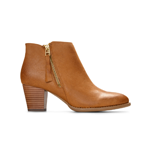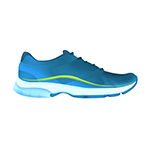
Vionic Celebrates Men's Health Month
 June is Men's Health Month, so we enlisted the help of Brian Hoke, a member of the Vionic Innovation Lab and a Doctor of Physical Therapy (DPT). He's worked with everyone from recreational runners to world-class athletes. Having treated a diverse array of patients, we asked him to shed some insight on some of the unique problems that men face regarding their foot health.
June is Men's Health Month, so we enlisted the help of Brian Hoke, a member of the Vionic Innovation Lab and a Doctor of Physical Therapy (DPT). He's worked with everyone from recreational runners to world-class athletes. Having treated a diverse array of patients, we asked him to shed some insight on some of the unique problems that men face regarding their foot health.
What kinds of differences do you see facing men and women when it comes to foot health?
Brian Hoke, DPT: Many problems for women are in the forefoot: bunions, metatarsalgia, Morton's neuroma, etc. For men, many problems center upon the heel, and the areas surrounding it.
What are some common issues that men contend with?
Brian Hoke, DPT: Above the heel is the powerful calf muscle as well as the Achilles tendon, the strongest tendon in the body. Unfortunately for many men, it can also be the tightest. Below the heel, on the arch side, is the main attachment of the thick band of tissue that supports the arch (known as the plantar fascia).
Many of us find ourselves sitting for long periods of time throughout the day. When this happens, the Achilles shortens, placing more strain on both the calf and the plantar fascia, resulting in plantar fasciitis. Men can experience heel pain when they stand up after a long meeting, until the calf muscle loosens up. Some also play the role of "weekend warrior," going from the low physical demand of the work day to intense activity and ballistic loads in sports and running. This can result in tears to the calf muscle and the Achilles' tendon.
What can be done to treat these symptoms?
Brian Hoke, DPT: Fortunately, there are a few simple solutions. The first is to have a regular daily stretching program for the calf muscle and Achilles' tendon. I recommend that men do these stretches daily: before getting out of bed and again after periods of prolonged sitting.
Here is an easy stretch to start with: sit on the floor with knees straight, turning the feet inward (supinated) toward the arch. Then, pull the front of the foot back toward the calf for 15 seconds. Repeat the stretch four times. This minute of stretching will keep the calf flexible enough for the demands of the day.
What kinds of shoes should men wear to prevent or alleviate these symptoms?
Brian Hoke, DPT: The heel should be supported by shoes that have a good firm heel counter (the part of the shoe that covers the heel), and a contoured footbed that matches the natural anatomy of the foot.
Vionic offers men's dress shoes for office wear that support the heel. Even when at home, it's important not to spend too much time walking barefoot on hardwood floors or ceramic tile. This lack of support can strain the plantar fascia and cause heel pain, so a sandal or house slipper is best.









